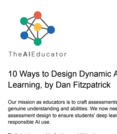
This resource guides you to transform you assessments to be more "AI proof" and authentic.
- Subject:
- Education
- Educational Technology
- Material Type:
- Assessment
- Author:
- Dan Fitzpatrick
- Date Added:
- 10/27/2023

This collection features a wide vareity of resources to support teachers with assessment.

This resource guides you to transform you assessments to be more "AI proof" and authentic.
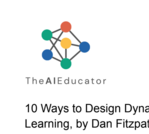
"Our mission as educators is to craft assessments that propel students to exhibit their genuine understanding and abilities. We now need to embrace innovative approaches to assessment design to ensure students' deep learning, critical thinking, personal growth, and responsible AI use."
*collaborative projects
*real world problem solving
*scaffolded assignments
*reflection
*multi-media presentations
*gamification
*debate and Socratic seminars
*authentic assessments
*self-assessment
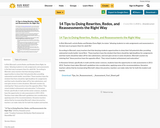
In Rick Wormeli’s article Redos and Retakes Done Right, he states “allowing students to redo assignments and assessments is the best way to prepare them for adult life.”
According to Wormeli, many teachers feel that denying students opportunities to show their full potential after providing substantial results builds ‘moral fibre’. These teachers have the mindset that there should be rigid deadlines for assignments and that marks should be taken off for late submissions, and even give zeroes in some situations. Wormeli counters by claiming that “these practices have the opposite effect: They retard student achievement and maturation.”
In Kenaston School, specifically in math and the senior sciences, students have the opportunity to redo assessments in 2011-2012. Teachers have taken Wormeli’s guidelines into consideration, applying some of his recommendations. Kenaston teachers advise that by incorporating Wormeli’s ideas into practice, teachers can make redos fair for both the student and teacher.

This short but informative article looks at what students need to become Assessment Capable Learners.

"...the power of these three principles of authentic and meaningful assessment: 1) Competency-based 2) Clear Goals and Personal Application, 3) High Expectations and High Support."

Some great ideas in here!

Forget the stigma and shame. Financial expert Bruce Sellery helps you understand bankruptcy and how to decide whether it's the right decision for your family...

"Giving students good feedback is crucial, but it can also be incredibly time-consuming. So we went straight to the source—experienced teachers—and identified some of the best advice we could find for striking the right balance between effective assessment and a reasonable workload."
This short video is excellent and provides 6 awesome tips for assessment!
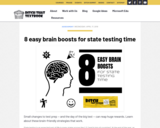
Small changes to test prep — and the day of the big test — can reap huge rewards. Learn about these brain-friendly strategies that work.
Cognitive science — the study of thought, learning and mental organization — tells us a lot about getting students primed to succeed on tests.
This resource outlines some practices that can help as you approach tests — and even on the day of the test:
1. Use retrieval to lock learning in long-term.
2. Mix up question types with interleaving.
3. Instead of cramming, space out practice.
4. Happiness is powerful.
5. Time of day matters.
6. Soak up the sun.
7. Breaks are essential.
8. Get up and move, move, move.

This article examines the steps required to involve students in their assessment. This article aligns closely with the PeBL philosophy and involves students throughout the learning process.

The material in this lesson will help students become aware of the warning signs of financial difficulties. When difficulties arise, students should first contact their creditors. Next, efforts should be made to revise spending patterns. In addition, assistance from a Credit Counseling service agencies might be considered. What if these actions do not help?

This collection features resources to support teaching Module 26B: Handling Debt Problems B from the Saskatchewan Financial Literacy curriculum. This activity suggests articles, websites, assignments, and discussion topics to help develop some problem-solving skills in relation to managing debt problems.
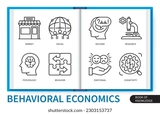
Part of micro-economics involves financial decision making at an individual level. Understanding "why" we do what we do, when it comes to decision making, will form an important foundation to making financial decisions. Cognitive Bias is a systematic error in thinking that occurs when people are processing and interpreting information in the world around them and affects the decisions and judgements they make. These two documents allow students and teachers to work through cases and situations where various types of cognitive bias exists and how it may impact decision making.

This collection features resources to support teaching Module 6C: Applying Personal Spending Plans from the Saskatchewan Financial Literacy curriculum. In Round 1, students learn to allocate their "20 bean salary" according to which options they want to spend their beans on. Round 2 forces the students to reduce their salary to 13 beans and make decisions about where they should make their "cuts". Round 3 includes some "life happens" challenges that allow students to make more decisions on where to move the beans in order to deal with the situations. This activity completes with some reflection questions on how this activity relates to budgeting with real income.
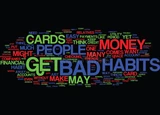
Smart money management requires building a foundation in strong, healthy financial habits. In this activity, we’ll learn about how habits work and then apply that knowledge to a financial habit that you’d like to change.Have students think about a financial habit they would like to change, and then answer the questions in the booklet.
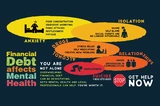
There are several interesting articles written by Anne Gaviola on Vice focused on Canadian finances, debt, and correlations between money and a person’s well-being. Keeping your debt a secret can mess with your mind and body. The culture of secrecy around debt causes young people to suffer in silence, making it even harder to manage debt. Use this content for case-based learning opportunities.
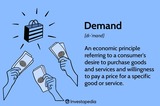
This activity supports Module 32e Economic Factors that impact personall financial decisions. We all know demand for goods and services can rise and fall, but what causes it to do those things? In this activity students will demonstrate how consumers’ income and preferences, prices of substitutes, and number of consumers in a market can affect demand. Students will reflect on their learning and how the actions may affect consumer demand for products and eventually the money we spend on purchases these products!

Marginal Cost/Benefit Decisions and the Investment Industry Watch video: DRUG SHORT ON NETFLIX in the Dirty Money Series (Series 1)This activity is meant to be used once Marginal Cost, Marginal Benefit and Diminishing Marginal Utility and Investing (short selling) are taught. The movie "Drug Short" is part of the Dirty Money Series 1 on Netflix. Underlying issues in this case are greed, ethics, corporate profit and efforts to maximize shareholder profit at all costs (even human life). This activity looks at the activites of pharmaceutical companies and their efforts to make money, yet disregarding the impact on people who rely on the medicine. Short seller investors "sold the stocks" of drug companies when the prices were high, predicting that there was unethical activities which would eventually bring the share price down. Short sellers make money by expecting share prices to fall, when they identify bad companies or unethical behavior (which is exactly what happened here).

Venture: Entrepreneurial ExpeditionIntroduce 7th - 10th grade students to the fundamentals of entrepreneurship, from creating a business plan to performing market research, in this food-truck simulation. In this program, students will progress through online (and offline) lessons entitled Building a Budget, The Entrepreneur in You, Planning & Building a Business, Your Business Snapshot.
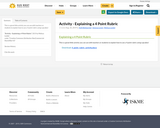
This is a great little activity you can use with teachers or students to explain how to use a 4 point rubric using cupcakes!